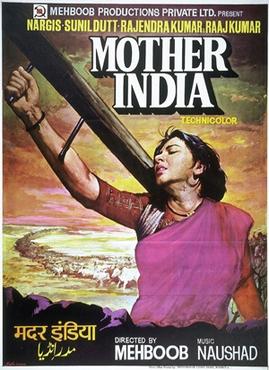- Get link
- Other Apps
- Get link
- Other Apps
Released in 1957, "Mother India" stands as an enduring masterpiece of Indian cinema, a saga that has left an indelible mark on audiences around the world. Directed by legendary filmmaker Mehboob Khan, the film is not just a narrative but a reflection of the ethos and struggles of rural India. It encapsulates the resilience of the human spirit amidst adversity, the power of maternal love, and the eternal battle between good and evil.
Set in the backdrop of rural India, "Mother India" portrays the life of Radha, brilliantly played by iconic actress Nargis, as she goes through the trials and tribulations of life. Radha, a young and spirited woman, symbolizes the strength and resilience of the Indian motherland. From her humble beginnings as a newly-wed bride full of dreams to emerging as a symbol of unwavering patience, Radha's journey is both touching and inspiring.
The story is based on the backdrop of an agrarian society where land is not just a means of livelihood but a way of life. Radha's struggles reflect the struggles of countless women in rural India, who work tirelessly to earn a living from the rugged soil. Mehboob Khan's skillful direction captures the rustic charm of rural life, a vivid portrait of rural landscapes and cultural traditions.
At the heart of "Mother India" lies the eternal theme of maternal love and sacrifice. Radha's unwavering devotion to her family, especially her wayward son Birju, epitomizes the selflessness of a mother's love. Despite facing betrayal, hardship and social ostracism, Radha remains steadfast in her commitment to upholding her principles and protecting her family's honour.
Birju, played by Sunil Dutt, emerges as a complex character torn between righteousness and rebellion. His tumultuous relationship with Radha serves as a powerful metaphor for the eternal conflict between tradition and modernity, familial duty and individual freedom. Through Birju's journey, "Mother India" explores themes of social justice, moral ambiguity and the cyclical nature of violence.
The film's iconic climax, set against a backdrop of raging fire and a raging storm, symbolizes the ultimate triumph of good over evil. Radha, faced with an impossible choice, embodies the spirit of sacrifice as she faces her own flesh and blood in the final showdown. In a climactic moment of catharsis, Radha's defiance against injustice resonates as a clarion call for social change and moral liberation.
Beyond its cinematic brilliance, "Mother India" is a mirror of the collective consciousness of a changing nation. In post-independence India, the film left a deep impression among audiences grappling with the challenges of nation-building, social reform and economic development. Its depiction of rural life is a reminder of the enduring inequalities and inequities that plague the Indian countryside.
Over the years, "Mother India" has earned its rightful place as a cultural touchstone, inspiring generations of filmmakers, artists and social activists. Its enduring legacy continues to resonate in the history of Indian cinema, reminding us of the timeless values of courage, compassion and resilience.
"Mother India" is more than just a film; It is a testament to the human spirit's capacity to endure, to love, and to overcome the trials of fate. As Radha stands amidst the ruins of her world, her indomitable spirit serves as a beacon of hope and inspiration for all who dare to dream of a better tomorrow.

Comments
Post a Comment